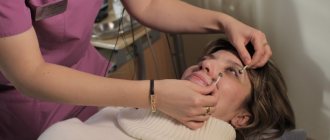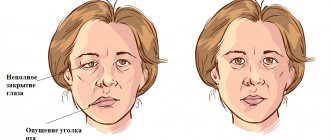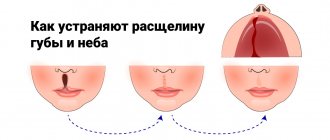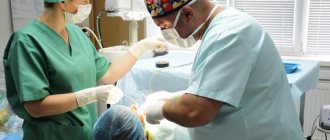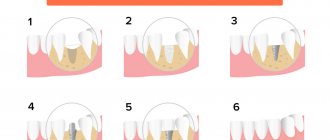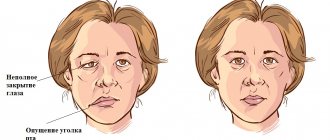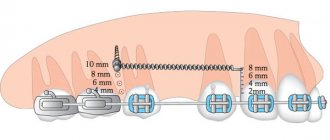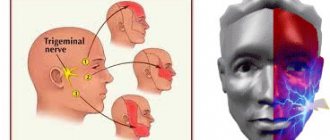Who is an oral and maxillofacial surgeon?
This specialist specializes in the surgical treatment of congenital and acquired pathologies of the jaw, face and neck. It not only restores the damaged functions of anatomical structures, but also eliminates cosmetic defects, that is, it returns the previous appearance.
However, he should not be confused with a plastic surgeon. The latter treats healthy people, he works on aesthetics, improves natural beauty. But the maxillofacial surgeon solves precisely medical problems. Its main goal is to improve health and restore the appearance that was before injury or illness. It primarily works with bone rather than soft tissue.
The doctor not only operates, he is engaged in postoperative treatment and rehabilitation of the patient, accompanying him until full recovery. Responsibilities of an oral and maxillofacial surgeon:
- interview and examination of the patient;
- conducting a diagnostic examination, including x-rays, CT scans, laboratory tests, allergy tests;
- choosing the most optimal treatment method;
- performing surgery;
- prevention of postoperative complications.
Preliminary preparation for procedures
It is necessary to carefully prepare for surgery. Preliminary preparation includes a full range of diagnostic measures, including the collection of various tests. Mandatory laboratory tests include clinical and biochemistry blood tests, as well as a general urine test. The doctor may prescribe a hormonal examination, scrapings from the epidermis in the affected area, computed tomography or magnetic resonance imaging, radiography or radiovisiography. All this will help the maxillofacial surgeon see the exact picture of the disease and select the most appropriate treatment.
Before the operation itself and in the postoperative period, you must strictly follow the doctor’s recommendations to avoid complications.
What diseases does an oral and maxillofacial surgeon treat?
Its competence includes the elimination of congenital and acquired defects, diseases of inflammatory, traumatic or tumor origin that are not amenable to conservative therapy. These include:
- injuries of the facial skeleton, teeth;
- pathologies of the salivary glands;
- cleft palate, cleft lip;
- dystopic, impacted and supernumerary teeth;
- small lower jaw;
- diseases of the mandibular joint: arthritis, arthrosis, articular disc dysfunction;
- inflammatory processes in the jaw area, facial skeleton: abscesses, phlegmon;
- osteomyelitis, periostitis, periodontitis;
- odontogenic benign and malignant tumors: dental cyst, odontoma, adamantinoma and others;
- malocclusion that cannot be corrected with orthopedic treatment.
The doctor performs planned and emergency operations. The latter are required for patients injured in road accidents, accidents, or military operations. Elective surgeries are more often prescribed for tumors, inflammatory processes and congenital anomalies.
Requirements
The specialist must receive a higher medical education in the specialty “maxillofacial surgery”. During the training he acquires the following theoretical and practical knowledge:
- studies anatomy and physiology, especially the maxillofacial region and neck;
- is trained in diagnostic methods;
- studies all maxillofacial pathologies;
- learns to perform operations: open abscesses and phlegmons, excise tumors, perform osteosynthesis;
- studies primary surgical treatment and much more.
The main treatment methods of a maxillofacial surgeon are surgical. He must master them thoroughly, use minimally invasive technologies and modern materials to avoid the formation of scars. The outcome of treatment and demand among patients depend on his competence.
To become a good oral and maxillofacial surgeon, you need not only experience, but also constant training. You can improve your knowledge and skills, as well as receive the appropriate supporting document, through advanced training courses at the Academy of Professional Standards.
What types of procedures are classified as maxillofacial surgery?
The activities of a maxillofacial surgeon can be divided into two main areas according to the criterion of urgency.
First, he surgically rids patients of birth defects and provides routine treatment. Preliminary preparation for such operations, including examinations, takes some time. Such “non-urgent” problems include many dental diseases, congenital defects, tumor formations, etc. As for congenital pathologies (“cleft palate”, “cleft lip”, tongue aplasia), they should be eliminated in early childhood during avoiding the development of psychological problems in the child.
Secondly, oral and maxillofacial surgery deals with emergency cases when, as a result of injury, accident or accident, a person acquires a defect in the face, neck or jaw, and when it is necessary to restore vital functions (respiratory, chewing, speech) and correct appearance through surgical intervention .
The scope of practice of an oral and maxillofacial surgeon includes procedures such as:
- taking anamnesis;
- external examination of the patient;
- conducting diagnostic studies and making a final diagnosis;
- surgical intervention;
- monitoring the healing process;
- carrying out preventive measures to avoid complications, etc.
Among the most popular surgical procedures in the maxillofacial area are:
- rhinoplasty;
- otoplasty;
- blepharoplasty;
- maxillary sinusotomy;
- prosthetics;
- osteosynthesis;
- removal of various tumors;
- circular facelift;
- contour plastic surgery.
During surgery, surgeons use the most modern equipment and materials, making operations less traumatic. This shortens the recovery period and helps reduce the likelihood of noticeable tissue scarring after surgery.
Pros and cons of the profession
Oral and maxillofacial surgery is one of the highest paid branches of medicine, which is a definite advantage. Experienced doctors are in demand and have good career prospects. But there are also disadvantages:
- high level of responsibility;
- psycho-emotional and physical stress;
- irregular working hours;
- complex and painstaking work, since the facial zone is an abundance of blood vessels and nerve endings that cannot be touched under any circumstances;
- low level of technical equipment in public clinics, which limits the doctor’s capabilities.
The concept of maxillofacial surgery
An oral and maxillofacial surgeon is a specialist who combines a plastic surgeon and a dentist, as he can solve problems in both areas. As for dentistry, maxillofacial surgeons are used for surgical treatment in the presence of impacted teeth and other serious pathologies. These specialists help eliminate problems associated with tumor formations in the face, as well as pathologies of the facial bones. This can already be attributed to the field of plastic surgery.
The areas of the face, neck and jaw are what are constantly in sight, and the slightest defects will be visible to others. This can cause a person both psychological and social problems. Defects of the maxillofacial region can be congenital (for example, cleft lip) or acquired, for example, as a result of trauma. Correction of such pathologies is the field of activity of the maxillofacial surgeon.
A specialist in this field must have extensive experience, as he has great responsibility. There are many blood vessels and nerve endings in the facial area, and the slightest carelessness can lead to serious negative consequences. Therefore, when choosing an oral and maxillofacial surgeon, it is very important to pay attention to his work experience and patient reviews.
Dentists at our clinics refer patients to an oral and maxillofacial surgeon at the Central Research Institute of Dentistry.
What personal qualities should an oral and maxillofacial surgeon have?
The work of a specialist is associated not only with physical, but also with psycho-emotional stress. He must have stress resistance and endurance. In addition to these qualities, others will be required:
- determination;
- persistence;
- responsibility;
- attention to details;
- desire to help the patient.
The surgeon performs quite intricate work, so he will need developed fine motor skills. He should not suffer from tremors of the limbs or musculoskeletal diseases, since these pathologies can put an end to his career.
Career prospects
Oral and maxillofacial surgeons work in large hospitals, specialized clinics, private centers for oral and maxillofacial surgery, and dentistry. In small settlements, the profession is not in great demand, so there is a greater chance of finding a job in large cities.
Good specialists can work in private medical institutions, specialized centers for maxillofacial surgery, and research institutes. It may be difficult to start your own business, as you will need to purchase expensive equipment.
Khatskevich Genrikh Abovich Head of the center Honored Doctor of the Russian Federation Chief specialist in maxillofacial surgery of St. Petersburg Professor, Doctor of Medical Sciences.
Personal consultations are provided by Professor, Honored Doctor of the Russian Federation, G.A. Khatskevich on Mondays from 10 to 12 hours. (Office of the director of the Center for Maxillofacial, Plastic Surgery and Dentistry - 9th floor of the hospital)
We accept patients who need to perform planned interventions of varying degrees of complexity.
In our hospital, the following interventions are performed:
— operations for granulomas and jaw cysts with preservation of teeth, including multi-root operations (apicotomies, root amputations, hemisections);
- removal of impacted teeth (wisdom teeth) and orthodontic operations for dystopia of teeth and exposure of their crown part with subsequent removal into the dentition, as well as the introduction of dental implants, including the use of osteoplasty techniques. We provide assistance with complications associated with tooth extraction.
For patients taking anticoagulants, we perform surgical sanitation of the oral cavity.
In our hospital, operations are performed for benign neoplasms with immediate closure of the resulting defects using various plastic techniques (including microvascular operations).
Interventions of any complexity are performed for various traumatic injuries of the soft tissues of the face and bones of the facial skull, orbit, both fresh and old (osteotomy followed by osteosynthesis of fragments).
Help is provided to patients with neuralgia and paresis of facial muscles with the involvement of neurosurgeons and neuropathologists. Both neuroplastic surgeries and plastic surgeries aimed at improving the appearance of a patient with paralysis of facial muscles can be performed.
Surgeries on the temporomandibular joint are also performed when indicated, including the use of modern prostheses for joint replacement. Non-invasive techniques for treating temporomandibular joint pathology are widely used (lavage, physiotherapeutic procedures, orthopedic methods together with related specialists)
Patients over 18 years of age can undergo surgical correction of malocclusions and congenital defects of the facial skeleton. When performing orthognathic operations - osteotomy of the lower jaw, osteotomy of the upper jaw, osteotomy of both jaws, we work closely with orthodontists. We carry out 3D computer modeling methods for diagnostic purposes, planning and predicting the results of surgery.
The presence of specialists of various profiles (ENT doctors, neurologists, ophthalmologists) in the State Medical Clinical Hospital No. 2 allows us to offer our patients complex treatment of diseases of the maxillofacial area, as well as treatment of concomitant pathologies while in the maxillofacial surgery department with the involvement of doctors of various specialties.
Currently, the Center has developed surgical methods for providing assistance to patients with radiation necrosis of the jaws, with bisphosphonate necrosis and extensive necrosis of the jaws while patients are taking desomorphine drugs
The Center has beds to provide assistance to patients with ENT pathology - leading physician Associate Professor E.B. Katinas. Gentle endoscopic methods for the treatment of sinusitis are carried out. Restoring the function of nasal breathing - correction of the nasal septum, etc., at the same time, the external nose can be corrected.
The Center performs plastic (aesthetic) surgeries for facial rejuvenation. They are performed by the head of the department of maxillofacial surgery, associate professor M.M. Soloviev.
We provide assistance not only to residents of St. Petersburg, but also to visitors from other regions of Russia, from the CIS countries and from abroad.
The hospital's powerful diagnostic facilities make it possible to conduct a comprehensive examination of patients. In the radiology department, radiography of teeth, maxillofacial area, orthopantomography, computed tomography, magnetic resonance imaging, and radioisotope studies are available.
The laboratory performs the full range of clinical, biochemical, bacteriological and immunological tests. All studies are carried out using equipment from leading companies in the world.
As part of our cooperation, we are ready to carry out an objective examination of complications that arose during the prehospital stage of treatment in relation to the doctors of the clinic.
At the request of the patient, additional services not covered by the compulsory health insurance program can be provided on a self-financing basis. Prices for self-supporting services and operations are set according to existing tariffs.
We will be happy to provide you with information about our clinic and answer your questions. You can call us at 5109333 (manager of the center), manager. department - 5109322, senior sister - 5109322
The center includes:
- Department of Maxillofacial Surgery
- Dentistry
- Otolaryngology
Ivanov Anton Rostislavovich
Graduated from the State Medical University. acd. I. P. Pavlova in 2007, majoring in General Medicine. From 2007 to 2009, he completed clinical residency training in the specialty “General Surgery” at the Faculty of Medicine of St. Petersburg State University. From 2009 to 2011 he studied in clinical residency at the Department of Pediatric Dentistry with a course of maxillofacial surgery at St. Petersburg State Medical University named after. acad. I. P. Pavlova. Since 2011 he has been working in the center of maxillofacial and plastic surgery under the guidance of prof. Khatskevich G.A., and private clinics. He is an employee of the Department of Pediatric Dentistry with a course in maxillofacial surgery, and actively participates in the scientific and teaching activities of the department. Regularly attends conferences and symposia in his specialty. He has a certificate of participation in the V International Youth Congress “St. Petersburg Readings 2013”, where he made a report on the problem of TMJ pathology. Actively involved in implantology, plastic and reconstructive surgery. She plans to write a PhD thesis on the problems of diagnosis and treatment of TMJ pathology.
Katinas Elena Borisovna, otorhinolaryngologist of the highest category, candidate of medical sciences, associate professor, associate professor of the department of otorhinolaryngology with the clinic of the State Budgetary Educational Institution of Higher Professional Education PSPbSMU named after. acad. I.P. Pavlova.
Graduated from St. Petersburg State Medical University named after. acad. I.P. Pavlova in 1996, majoring in general medicine. From 1996 to 1997 she studied in a clinical internship, and then from 1997 to 1999 in a clinical residency at the Department of Otorhinolaryngology with a clinic.
From 2000 to 2003, she completed full-time postgraduate study at the Department of Otorhinolaryngology with a clinic, followed by defense of a dissertation on the topic: “Clinical and immunological justification for the local use of recombinant interleukin-1β and interleukin-2 drugs in the treatment of acute purulent sinusitis,” in specialties 14.00.04 – diseases of the ear, nose and throat, 14.00.36 – allergology and immunology. In 2010, he was awarded the academic degree of associate professor. Since 2009, otolaryngologist at the Department of Maxillofacial and Plastic Surgery.
Kurus Anton Alekseesvich Otorhinolaryngologist, Candidate of Medical Sciences
Graduated from St. Petersburg State Medical University. acad. I.P. Pavlova in 2008. There he also completed his internship, residency and full-time postgraduate studies at the Department of Otorhinolaryngology with a clinic. In 2015, he defended his PhD thesis on the topic “Optimization of diagnosis and treatment of traumatic injuries of the maxillary sinuses during fractures of the middle zone of the facial skeleton.”
From 2009 to the present, he has been working as an otorhinolaryngologist in the department of maxillofacial surgery of the State Medical Clinical Hospital No. 2. Areas of interest: endoscopic surgery of the nasal cavity and paranasal sinuses, laser surgery of the ENT organs, endoscopic removal of lacrimal duct obstruction, treatment of snoring and obstructive sleep apnea syndrome.
Has 10 scientific publications.
Training:
- 2011 – Open Medical Institute, Satellite Symposium on Otorhinolaryngology (Prof. M. Stewart, Prof. D. Kutler, USA)
- 2012 – Annual Congress of the American Association of Otolaryngologists (Washington)
- 2012 – internship at Lennox Hill Hospital and Head and Neck Institute, New York (Prof. Y. Krespi)
- 2014 – 6th World Congress of Endoscopic Surgery (Milan)
- 2015 – 4th Russian-American seminar on rhinology (Prof. E. Kern)
- 2015 – internship at Manhattan Eye, Ear and Throat Hospital and Head and Neck Institute, New York (Prof. Y. Krespi)
- 2015 — Annual Congress of the American Association of Otolaryngologists (Dallas)
Onokhova Tatyana Leonidovna
in 1996 she graduated from Arkhangelsk State Medical University, Faculty of Dentistry.
from 1997 to 1999, she completed clinical residency training in the specialty “maxillofacial surgery” at the Department of Pediatric Dentistry with a course in maxillofacial surgery at the State Budgetary Educational Institution of Higher Professional Education, PSPbSMU named after. I.P. Pavlova
From 1999 to the present, he has been an employee (maxillofacial surgeon) of the Center for Maxillofacial and Plastic Surgery of the State Medical Pediatric Hospital No. 2 under the leadership of Professor G.A. Khatskevich
Since 2013, has the first category in maxillofacial surgery
Since 2010, senior laboratory assistant at the Department of Pediatric Dentistry with a course in maxillofacial surgery.
She regularly took advanced training courses in the Russian Federation and abroad, took part in conferences and seminars, and carries out pedagogical work with interns, residents and students.
Specialization: treatment of patients with chronic destructive processes of the jaws, osteonecrosis (bisphosphonate, post-radiation, desomorphine), inflammatory diseases and trauma of the maxillofacial area.
Finikov Alexander Vladimirovich is a certified maxillofacial and plastic surgeon.
Graduated from St. Petersburg State Medical University named after. Academician I. P. Pavlova in 2001. Currently, he is proficient in all basic surgical techniques for reconstructive and plastic interventions on the face and neck. An area of particular interest is orthognathic surgery and the correction of dentofacial anomalies.
Internal labor regulations in MS Word format (docx)
Where to study to become an oral and maxillofacial surgeon
It is necessary to graduate from a higher educational institution. First, you need to study at the faculty of Pediatrics or Dentistry, and then complete a residency in Maxillofacial Surgery.
Specialists who have had a break in their work experience will need to undergo professional retraining in order to receive permission to work.
The Academy of Professional Standards conducts professional retraining courses lasting 3.5 months. Upon completion, the medical specialist receives a standard diploma. After passing accreditation, he can continue to work in his specialty.

